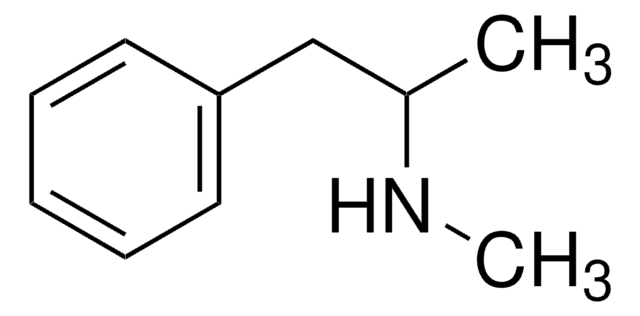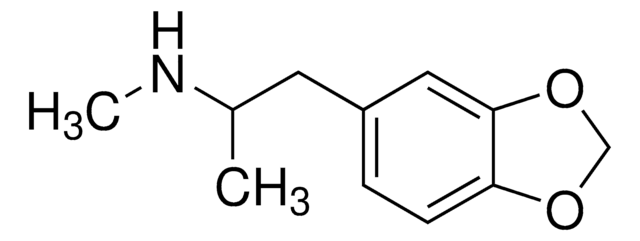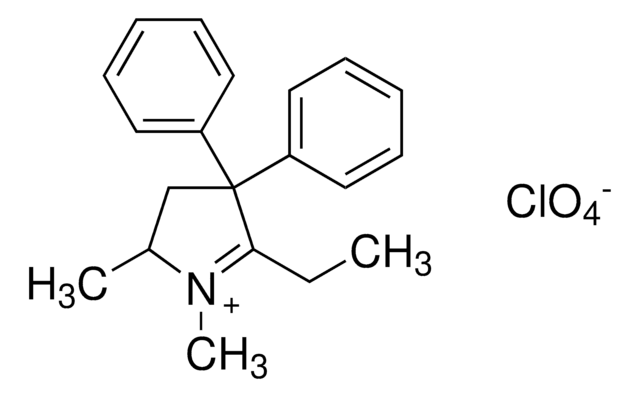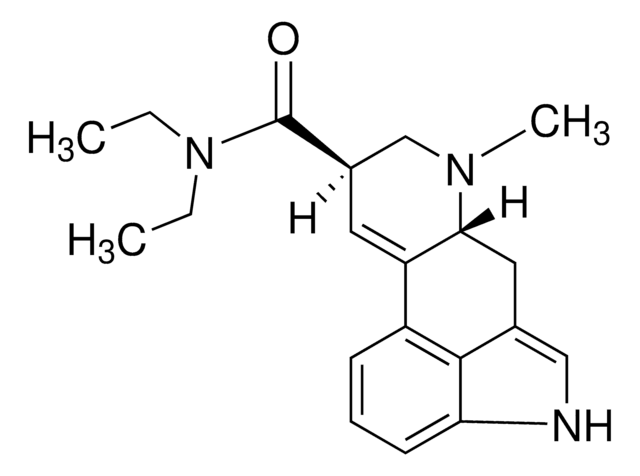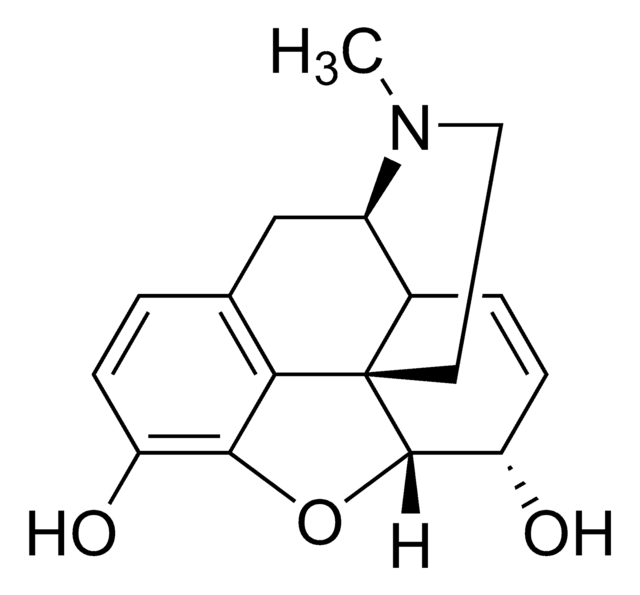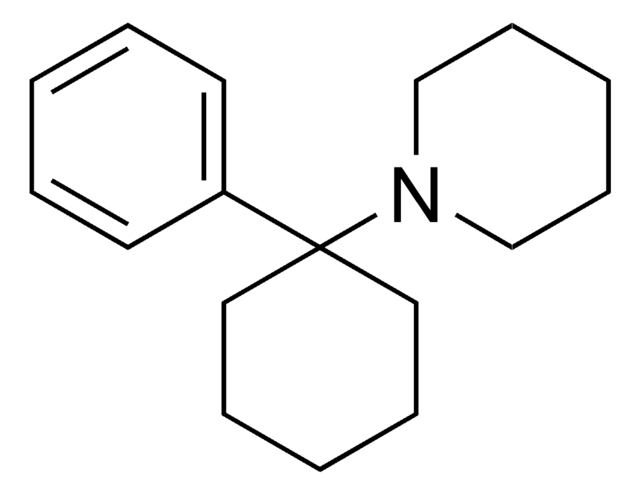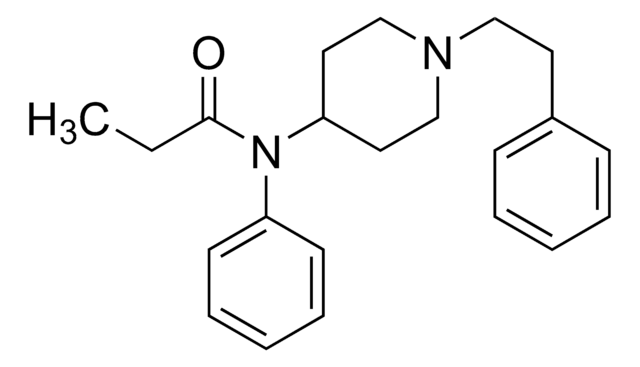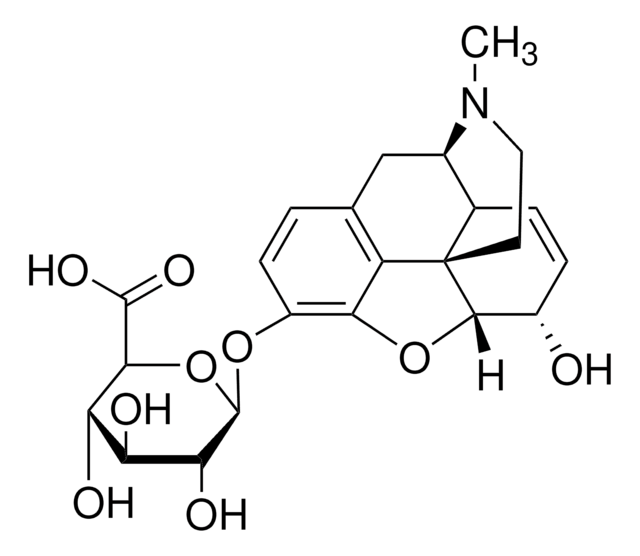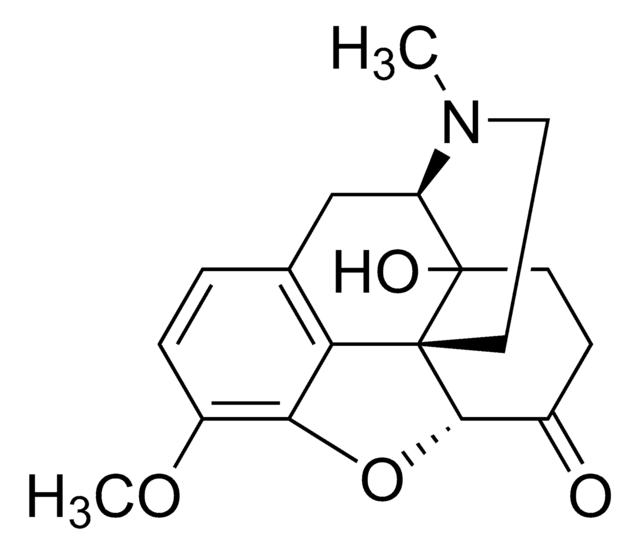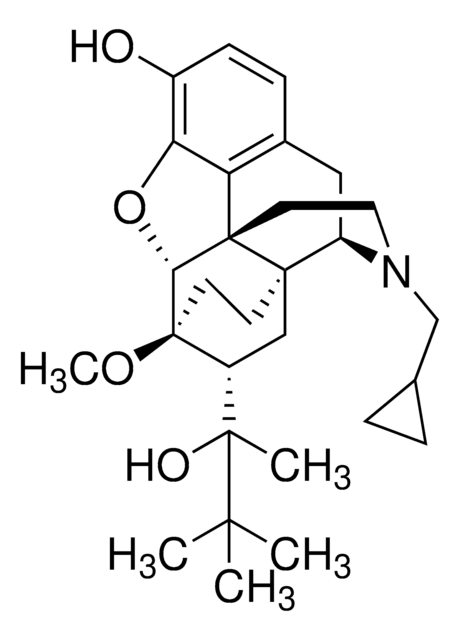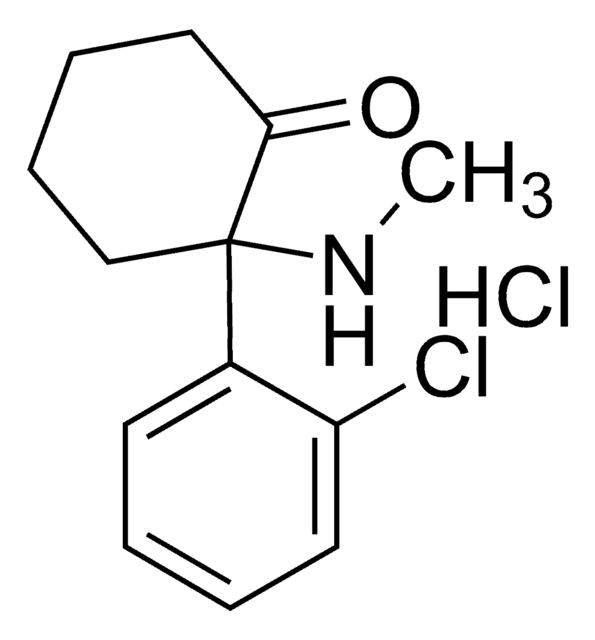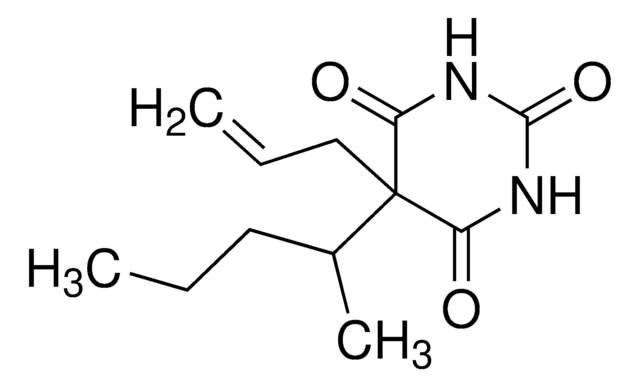M-007
(±)-Methadone solution
1 mg/mL in methanol, ampule of 1 mL, certified reference material, Cerilliant®
About This Item
Recommended Products
grade
certified reference material
Quality Level
form
liquid
packaging
ampule of 1 mL
manufacturer/tradename
Cerilliant®
drug control
Narcotic Licence Schedule A (Switzerland); estupefaciente (Spain); Decreto Lei 15/93: Tabela IA (Portugal)
concentration
1 mg/mL in methanol
technique(s)
gas chromatography (GC): suitable
liquid chromatography (LC): suitable
application(s)
forensics and toxicology
format
single component solution
storage temp.
−20°C
SMILES string
CCC(C(CC(C)N(C)C)(C1=CC=CC=C1)C2=CC=CC=C2)=O
InChI
1S/C21H27NO/c1-5-20(23)21(16-17(2)22(3)4,18-12-8-6-9-13-18)19-14-10-7-11-15-19/h6-15,17H,5,16H2,1-4H3
InChI key
USSIQXCVUWKGNF-UHFFFAOYSA-N
Gene Information
human ... OPRM1(4988)
Looking for similar products? Visit Product Comparison Guide
General description
Application
- Neurobehavioral and Molecular Changes in a Rodent Model: This study leverages Imipramine hydrochloride in a rodent model to investigate ACTH-induced HPA axis dysfunction, focusing on its effects on neurobehavior and molecular signaling pathways. This research underscores the utility of Imipramine hydrochloride in studying stress-related neuropsychiatric disorders, enhancing understanding of its therapeutic mechanisms in clinical settings (Sallie et al., 2024).
- Electrochemical DNA Biosensor Development: Imipramine hydrochloride is used in the development of novel electrochemical DNA biosensors, highlighting its role in enhancing the sensitivity and specificity of genetic analysis. This application is pivotal in biotechnological advancements for genomics and personalized medicine (Augustín et al., 2024).
- Diabetic Peripheral Neuropathy: Prevention and Treatment: Research incorporating Imipramine hydrochloride focuses on its effectiveness in managing symptoms of diabetic peripheral neuropathy, providing insights into its analgesic properties and mechanisms of action in nerve pain management, which is crucial for developing better therapeutic strategies (Bragg et al., 2024).
- Microvesicle Particles in Burn Injury: Utilizes Imipramine hydrochloride in a study investigating the role of microvesicle particles in mediating damage in burn injury cases, offering a new perspective on the systemic impacts of burn injuries and the potential interventions to mitigate these effects (Lohade et al., 2024).
- Sustainable Biosensor for Tricyclic Antidepressants: Highlights the use of Imipramine hydrochloride in the development of sustainable beeswax modified cellulose paper for the detection of tricyclic antidepressants in biofluids. This innovative approach represents a significant step forward in environmental sustainability and drug monitoring technologies (González-Bermúdez et al., 2024).
Legal Information
related product
Signal Word
Danger
Hazard Statements
Precautionary Statements
Hazard Classifications
Acute Tox. 3 Dermal - Acute Tox. 3 Inhalation - Acute Tox. 3 Oral - Flam. Liq. 2 - STOT SE 1
Target Organs
Eyes
Storage Class Code
3 - Flammable liquids
WGK
WGK 2
Flash Point(F)
49.5 °F - closed cup
Flash Point(C)
9.7 °C - closed cup
Choose from one of the most recent versions:
Certificates of Analysis (COA)
Sorry, we don't have COAs for this product available online at this time.
If you need assistance, please contact Customer Support.
Already Own This Product?
Find documentation for the products that you have recently purchased in the Document Library.
Customers Also Viewed
Articles
Although both biphenyl and phenyl-hexyl phases can resolve these compounds, the former exhibits excellent peak shape and substantially less silanol-derived ion exchange activity.
Our team of scientists has experience in all areas of research including Life Science, Material Science, Chemical Synthesis, Chromatography, Analytical and many others.
Contact Technical Service